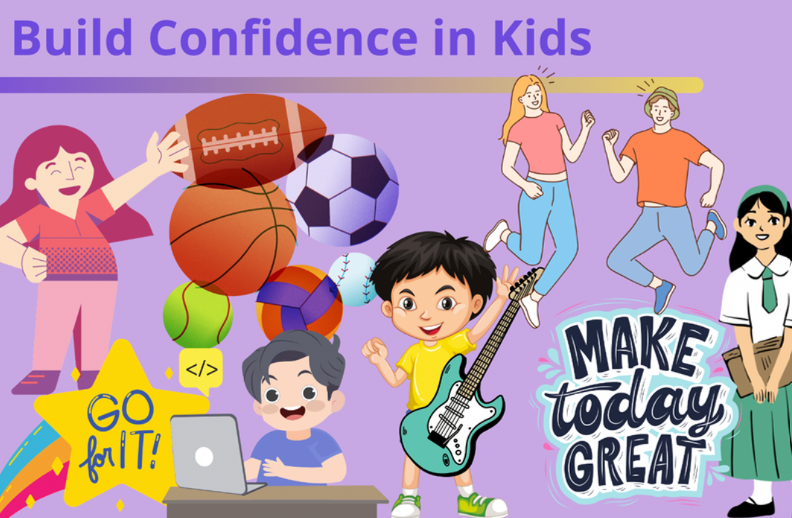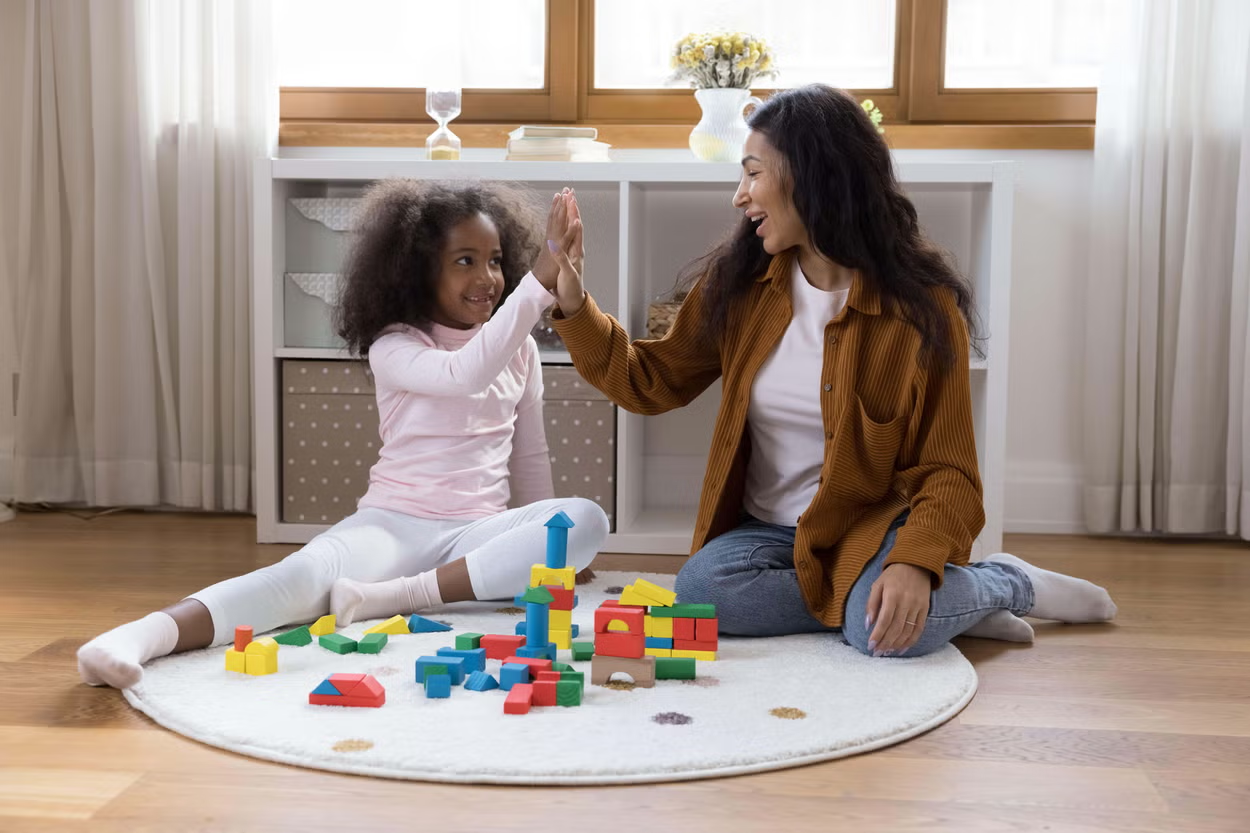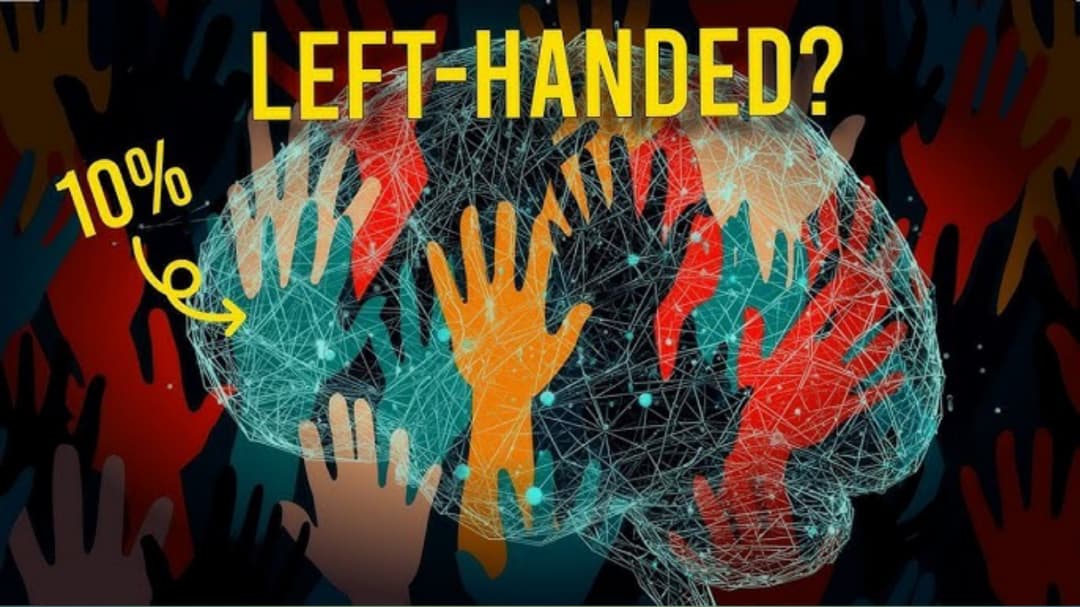How to Teach Your Child Confidence in a Culture of Comparison

It’s no longer the playground that shapes a child’s self-worth.
From TikTok dances to Instagram aesthetics, today’s children are learning to value themselves through a lens, often one filtered beyond recognition. While adults wrestle with envy scrolling through curated success, imagine what this endless feed of perfection does to a 10-year-old still trying to understand who they are.
A UNICEF report on digital childhood revealed that over one in seven adolescents worldwide struggles with anxiety, depression, or low self-esteem linked to social comparison and online pressure. In Nigeria, Kenya, and South Africa where smartphone use among youth has skyrocketed, social media has become both a classroom and a mirror, teaching lessons not every parent signed up for.
Parents now face a quiet crisis: they want their children to fit in, yet they want them to stand out. Every “like” becomes validation; every lack of attention feels like rejection.
It’s a toxic feedback loop where the measure of worth is often tied to numbers, views, comments, engagement.
When comparison becomes culture, confidence must become a deliberate teaching.
But how do you teach a child to believe in themselves when the world around them constantly tells them they’re not enough?
Start with honest conversations

The first step is not protection, it’s connection.
Instead of simply limiting screen time, talk about what they’re seeing. Ask what they feel when they scroll through someone’s “perfect” life online. Don’t dismiss their reactions or say, “It’s all fake.” That response doesn’t comfort them; it invalidates what they feel.
Platforms like Common Sense Media offer conversation guides for parents to discuss social media with kids. The goal isn’t to demonize technology, it’s to build critical thinkers who can separate curation from reality.
A Lagos-based child psychologist, Dr. Ijeoma Nwosu, puts it simply: “Children don’t need protection from the internet. They need perspective. When you discuss what they see, you teach them to see through it, not just look at it.”
Model the confidence you preach, Children mirror what they see, not what they’re told.
When they hear you call yourself fat, broke, or not good enough, they learn that insecurity is normal. Instead, let them see you practice self-compassion, talking kindly to yourself when things go wrong, laughing off mistakes, celebrating small wins.
According to the American Psychological Association, children of parents who model self-compassion tend to develop emotional resilience and higher self-esteem. Your inner voice becomes their inner dialogue.
African parents, traditionally raised on stoicism, sometimes struggle with this. Vulnerability isn’t weakness, it’s emotional education. As one Kenyan mother shared during a BBC Africa parenting feature, “My daughter learned confidence the day she saw me admit I didn’t have all the answers.”
Reward effort, not just results
The pressure to “be number one” starts early in school rankings, sports, even social status. When you only praise perfection, you condition your child to equate worth with achievement. But when you reward effort; trying, failing, learning, you build confidence that survives failure.
Research from the University of Cape Town shows that children praised for persistence rather than talent are more likely to develop a growth mindset, the belief that ability can be improved with time and effort. This kind of thinking produces innovators, not imitators.
A Ghanaian educator, Yaw Mensah, summed it up well: “If our schools only reward top grades, we raise children who fear mistakes. And if they fear mistakes, they’ll never take risksor change the world.”
Confidence isn’t formed in isolation. It grows in community.
Encourage your child to build friendships and join activities that have nothing to do with screens, sports, art, volunteering, or faith-based groups. These spaces remind children that connection isn’t transactional, and life isn’t lived in pixels.
The African Child Policy Forum found that children engaged in local community programs reported 40% higher emotional stability than peers who spent most of their free time online. Human connection not digital connection is the real confidence booster.
In Lagos, for instance, initiatives like Slum2School Africa offer mentorship and emotional development programs that help children discover their strengths beyond academics or material comparison.
Build emotional literacy early

Confidence isn’t just believing “I can do it.” It’s also knowing how to handle not doing it.
Teach your child to name their feelings; sadness, anger, frustration and to understand that emotions aren’t problems, they’re information. Emotional literacy helps them navigate disappointment without losing self-worth.
Psychologists call this “emotion coaching.” It helps children regulate their internal world so they can thrive in an external one that’s unpredictable and often unkind.
Dr. Amaka Igwe, a child development expert at the University of Nigeria Nsukka, emphasizes this point: “Confidence without emotional intelligence is arrogance. But when a child learns to process feelings, they grow into adults who can withstand comparison without collapsing under it.”
Confidence also thrives on structure.
Establish digital boundaries that make sense for your household not as punishment, but as protection. Create “tech-free zones” during meals or an hour before bedtime. Lead by example. If your child sees you constantly scrolling, your words won’t matter.
In one survey by Pew Research Center, 66% of teens said they wished their parents spent less time on their phones. That statistic alone speaks volumes. The example you set is more powerful than any rule you enforce.
Try turning off notifications during family time. Replace background TV with conversation or music. Reclaim presence, it’s the quiet confidence children remember.
Teach them that comparison is inevitable but interpretation is a choice
You can’t eliminate comparison, but you can redefine it.
Show your child that noticing someone’s success doesn’t have to diminish their own. Encourage admiration without envy to say, “That’s great for them,” instead of, “Why not me?”
An empowering exercise some parents use is “The Compliment Shift.” Every time your child praises someone else’s talent or looks, ask them to mention something they admire about themselves too. It rewires the brain toward balanced self-perception.
This practice aligns with findings from the World Health Organization’s Mental Health Atlas, which highlights self-affirmation as a core strategy in youth resilience programs.
In many African homes, humility is prized and rightfully so. But humility without confidence often becomes self-erasure.
It’s possible to teach both. Remind your child that confidence isn’t arrogance; it’s clarity. It’s knowing their worth without needing to prove it.
South African writer Lebo Mashile once said, “Confidence is not walking into a room thinking you’re better than everyone. It’s walking in knowing you don’t have to compare yourself at all.”
This mindset can reshape a generation raised on algorithms that profit from insecurity.
Raising a confident child in today’s world is not about perfection, it’s about consistency. Every time you listen without judgment, praise their effort, or admit your own flaws, you’re reinforcing their internal strength.
Confidence isn’t a single moment; it’s a collection of moments; quiet reassurances, small victories, gentle corrections, and shared laughter.
The world will always give your child reasons to doubt themselves. Your job is to make sure they remember who they are when the noise gets too loud.
In an age where self-worth has become currency, teaching confidence is radical love. It’s resistance against a culture that thrives on insecurity.
You don’t have to be the perfect parent. Just the one who reminds your child that they are already enough, with or without the filter.
You may also like...
When Sacred Calendars Align: What a Rare Religious Overlap Can Teach Us

As Lent, Ramadan, and the Lunar calendar converge in February 2026, this short piece explores religious tolerance, commu...
Arsenal Under Fire: Arteta Defiantly Rejects 'Bottlers' Label Amid Title Race Nerves!

Mikel Arteta vehemently denies accusations of Arsenal being "bottlers" following a stumble against Wolves, which handed ...
Sensational Transfer Buzz: Casemiro Linked with Messi or Ronaldo Reunion Post-Man Utd Exit!

The latest transfer window sees major shifts as Manchester United's Casemiro draws interest from Inter Miami and Al Nass...
WBD Deal Heats Up: Netflix Co-CEO Fights for Takeover Amid DOJ Approval Claims!

Netflix co-CEO Ted Sarandos is vigorously advocating for the company's $83 billion acquisition of Warner Bros. Discovery...
KPop Demon Hunters' Stars and Songwriters Celebrate Lunar New Year Success!

Brooks Brothers and Gold House celebrated Lunar New Year with a celebrity-filled dinner in Beverly Hills, featuring rema...
Life-Saving Breakthrough: New US-Backed HIV Injection to Reach Thousands in Zimbabwe

The United States is backing a new twice-yearly HIV prevention injection, lenacapavir (LEN), for 271,000 people in Zimba...
OpenAI's Moral Crossroads: Nearly Tipped Off Police About School Shooter Threat Months Ago
ChatGPT-maker OpenAI disclosed it had identified Jesse Van Rootselaar's account for violent activities last year, prior ...
MTN Nigeria's Market Soars: Stock Hits Record High Post $6.2B Deal

MTN Nigeria's shares surged to a record high following MTN Group's $6.2 billion acquisition of IHS Towers. This strategi...






